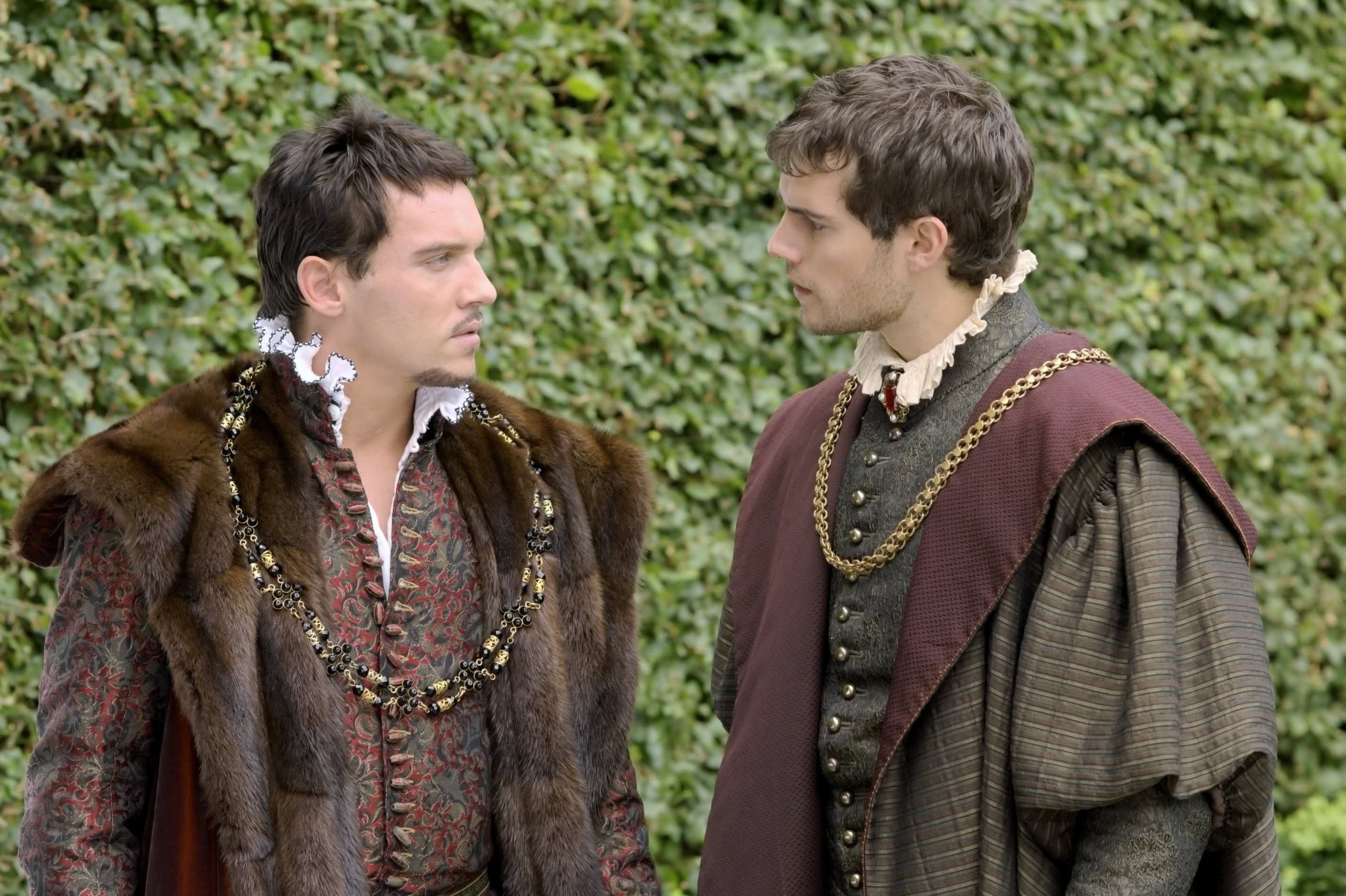Unpacking The Legacy Of Thomas More In The Tudors
Thomas More, a name that echoes through the corridors of history, is a figure whose life and legacy have fascinated historians and enthusiasts alike. His story, intertwined with the tumultuous reign of King Henry VIII, is one of integrity, conviction, and ultimately, sacrifice. In the modern retelling of history, particularly in the hit series "The Tudors," More's character stands out as a beacon of moral fortitude amidst political chaos. But who was Thomas More, and why does his story continue to captivate us centuries later? Let's dive into the details.
Thomas More, often portrayed as a man of principle, is remembered for his unwavering commitment to justice and faith. His life, which spanned the early 16th century, was marked by a series of events that would shape not only his destiny but also the course of English history. In "The Tudors," his portrayal captures the essence of his character—wise, principled, and unyielding in the face of adversity. This article aims to explore his life, contributions, and the enduring legacy he left behind.
As we delve deeper into the world of Thomas More, it's important to understand the context in which he lived. The Tudor era was a time of immense change, both politically and religiously. Henry VIII's break from the Catholic Church, the establishment of the Church of England, and the subsequent impact on the nation's religious landscape are all intertwined with More's story. His refusal to acknowledge Henry as the Supreme Head of the Church of England would ultimately cost him his life. Yet, his story lives on, inspiring generations to stand firm in their beliefs.
- Goggins Actor The Rise Of A Fitness Icon In Hollywood
- Mr Bean Net Worth The Hidden Fortune Behind The Silly Face
Biography of Thomas More
Early Life and Education
Thomas More was born in London in 1478 to a family of modest means. His father, Sir John More, was a successful lawyer and judge, providing young Thomas with a solid foundation in law and governance. From an early age, More showed a keen intellect and a passion for learning. He attended St. Anthony's School in London before moving on to study at Canterbury College, Oxford. There, he immersed himself in the classics, developing a love for literature and philosophy that would stay with him throughout his life.
More's early education laid the groundwork for his future career. He studied under some of the finest minds of the time, gaining exposure to the works of Plato, Aristotle, and other great thinkers. This intellectual foundation would later inform his writing and his approach to governance. His time at Oxford also exposed him to the ideas of humanism, a movement that emphasized the importance of human potential and achievement. This philosophy would play a significant role in shaping his worldview and his approach to public service.
Public Career and Achievements
After completing his studies, More embarked on a career in law, quickly rising through the ranks to become one of the most respected jurists of his time. He served as a Member of Parliament, where he earned a reputation for his eloquence and integrity. In 1516, he published "Utopia," a groundbreaking work that explored the possibilities of an ideal society. This book cemented his reputation as a leading intellectual and humanist of the Renaissance era.
- Whats The Real Deal Behind The Upside Down Flag Meaning Lets Dive In
- Luke Nichols Wikipedia A Deep Dive Into The Life And Legacy Of A True Star
More's public career reached its zenith when he was appointed Lord Chancellor of England in 1529. As Lord Chancellor, he was responsible for overseeing the administration of justice in the kingdom. Despite the immense pressures of the role, More remained steadfast in his commitment to fairness and impartiality. His tenure was marked by a series of reforms aimed at improving the legal system and ensuring that justice was accessible to all, regardless of social status.
Conflict with King Henry VIII
The turning point in More's life came with the rise of King Henry VIII and his desire for a divorce from Catherine of Aragon. When the king sought to break from the Catholic Church to establish the Church of England, More found himself at odds with the monarch. As a devout Catholic, More could not condone the king's actions, which he saw as a betrayal of both religious and moral principles.
This conflict eventually led to More's downfall. In 1534, he refused to take the Oath of Supremacy, which acknowledged Henry VIII as the head of the Church of England. This act of defiance resulted in his arrest and subsequent trial. Despite a vigorous defense, More was convicted of treason and sentenced to death. His execution in 1535 marked the end of a remarkable life, but his legacy lived on, inspiring countless others to stand firm in their convictions.
Thomas More in "The Tudors"
Character Depiction in the Series
In the popular television series "The Tudors," Thomas More is portrayed as a complex and multifaceted character. Played by actor Jeremy Northam, More is depicted as a man of deep faith and unshakable principles. The series highlights his struggles against the encroaching power of King Henry VIII and his ultimate martyrdom for his beliefs. Through flashbacks and dialogue, the show delves into More's personal life, showcasing his devotion to his family and his commitment to justice.
The portrayal of More in "The Tudors" is both sympathetic and nuanced. While the series emphasizes his steadfastness, it also explores the personal toll of his convictions. The show portrays him as a man torn between his duty to his faith and his loyalty to his king, a conflict that ultimately leads to his downfall. This depiction resonates with audiences, offering a relatable and humanizing perspective on a historical figure often seen as larger-than-life.
Historical Accuracy in "The Tudors"
While "The Tudors" provides a compelling narrative of Thomas More's life, it is important to note that the series takes some creative liberties with historical facts. The show condenses timelines and dramatizes events to enhance its storytelling. For example, the portrayal of More's relationship with King Henry VIII is sometimes exaggerated for dramatic effect. However, the core elements of More's story—his principled stance against the king and his eventual martyrdom—are accurately represented.
Despite these dramatizations, "The Tudors" serves as an excellent introduction to the life and times of Thomas More. It captures the essence of his character and the challenges he faced during one of the most turbulent periods in English history. For those interested in learning more about this remarkable figure, the series provides a solid foundation for further exploration.
Thomas More's Contributions to Literature and Philosophy
Utopia: A Vision of an Ideal Society
One of Thomas More's most enduring contributions to literature is his book "Utopia," published in 1516. This work presents a fictional account of a perfect society, where justice, equality, and harmony reign supreme. "Utopia" explores themes such as governance, economics, and social structure, offering a critique of the societal norms of More's time.
The book is divided into two parts. The first part critiques the flaws of contemporary European society, while the second part describes the ideal society of Utopia. More's vision of Utopia includes concepts such as communal property, religious tolerance, and a focus on education. While the book is fictional, its ideas have had a lasting impact on political theory and philosophy.
Influence on Modern Political Thought
More's ideas in "Utopia" have influenced generations of thinkers and leaders. His emphasis on the importance of justice and equality has inspired movements for social reform and political change. The book's exploration of governance and societal structure continues to be studied in universities around the world, highlighting its relevance to contemporary issues.
More's work also reflects the principles of humanism, a movement that emphasized the potential of human beings to achieve greatness. His writings challenge readers to imagine a better world and to strive for a society that reflects the highest ideals of humanity. This legacy of thought and inquiry continues to inspire scholars and activists today.
Thomas More's Legacy and Impact
Canonization and Sainthood
In 1935, nearly four centuries after his death, Thomas More was canonized by the Catholic Church, becoming Saint Thomas More. His martyrdom for his faith and his unwavering commitment to justice earned him the title of patron saint of statesmen and politicians. More's canonization reflects the enduring respect and admiration he commands within the Catholic community and beyond.
His sainthood is a testament to the enduring power of his principles and the impact of his life on the world. More's story serves as a reminder of the importance of standing firm in one's beliefs, even in the face of adversity. His canonization also highlights the universal appeal of his values, transcending religious and cultural boundaries.
Lessons for Today's World
Thomas More's life offers valuable lessons for the modern world. In an era marked by political polarization and social division, his example of integrity and principle is more relevant than ever. More's commitment to justice and fairness serves as a model for leaders and citizens alike, encouraging us to prioritize ethical considerations in our decision-making.
His story also underscores the importance of standing up for one's beliefs, even when it is difficult or unpopular to do so. In a world where compromise is often seen as a virtue, More's life reminds us of the value of conviction and moral courage. His legacy challenges us to reflect on our own values and to consider how we can contribute to creating a more just and equitable society.
Thomas More in Popular Culture
Portrayals in Film and Television
Thomas More has been the subject of numerous films and television series over the years. In addition to "The Tudors," he has been portrayed in movies such as "A Man for All Seasons," which won multiple Academy Awards. These portrayals often emphasize different aspects of More's character, from his intellectual brilliance to his moral courage.
Each adaptation brings its own interpretation of More's life and legacy, offering audiences new insights into his story. While some focus on his political career, others highlight his personal life and relationships. Through these various portrayals, More's character continues to captivate and inspire audiences around the world.
Impact on Modern Media
Thomas More's story has had a lasting impact on modern media, influencing writers, filmmakers, and artists across a range of disciplines. His life and works continue to inspire creative projects, from novels to documentaries, that explore themes of justice, faith, and integrity. This ongoing engagement with More's legacy reflects the timeless nature of his ideas and the enduring relevance of his story.
As media evolves, so too does the way in which More's life is portrayed. New technologies and storytelling techniques offer fresh perspectives on his life, allowing audiences to engage with his story in innovative ways. This ongoing exploration of More's legacy ensures that his influence will continue to be felt for generations to come.
Thomas More's Influence on Governance and Law
Reforms and Innovations
As Lord Chancellor, Thomas More implemented a series of reforms aimed at improving the administration of justice in England. He worked to streamline legal processes, making them more efficient and accessible to the general public. More's efforts to ensure that justice was served fairly and impartially set a standard for future generations of jurists and lawmakers.
His innovations in governance included the establishment of a more transparent legal system, where decisions were made based on evidence and reason rather than bias or favoritism. More's commitment to fairness and equality in the legal process has left a lasting impact on the development of modern jurisprudence.
Legacy in Legal Thought
Thomas More's contributions to legal thought continue to influence the field today. His emphasis on the importance of justice and fairness has shaped the development of legal systems around the world. More's legacy is evident in the principles of modern law, which prioritize transparency, accountability, and the protection of individual rights.
His writings and speeches on governance and justice remain relevant, offering valuable insights into the challenges and opportunities of modern legal systems. More's vision of a just and equitable society continues to inspire lawyers, judges, and policymakers as they work to create legal frameworks that reflect the highest ideals of humanity.
Conclusion: Reflecting on Thomas More's Life and Legacy
Thomas More's life and legacy offer a powerful reminder of the importance of standing firm in one's beliefs, even in the face of adversity. His story, as portrayed in "The Tudors" and other media, continues to captivate audiences, inspiring them to reflect on their own values and convictions. Through his writings, his legal reforms, and his ultimate sacrifice, More has left an indelible mark on history.
As we look back on his life, it is clear that More's principles of justice, integrity, and faith remain as relevant today as they were in the 16th century. His example challenges us to consider how we can contribute to creating a more just and equitable society, one that reflects the highest ideals of humanity. By studying More's life and legacy, we can gain valuable insights into the challenges and opportunities of our own time.
So, what can we take away from Thomas More's story? First and foremost, the importance of standing up for what we believe in, even when it is difficult or unpopular to do so. Second, the value of integrity and fairness in all aspects of life, from governance to personal relationships. Finally, the enduring power of conviction and moral courage in shaping the world around us. Let Thomas More's story inspire us to strive for a better future, one rooted in justice and equality for all.
Table of Contents
- Samantha Middleton Husband The Untold Story You Wonrsquot Believe
- Alanna Masterson Relationship The Inside Scoop On Love Life And Everything In Between

TUDORS SHIRT KINGDOM

Shirt TUDORS

The Tudors The Tudors Photo (16000367) Fanpop